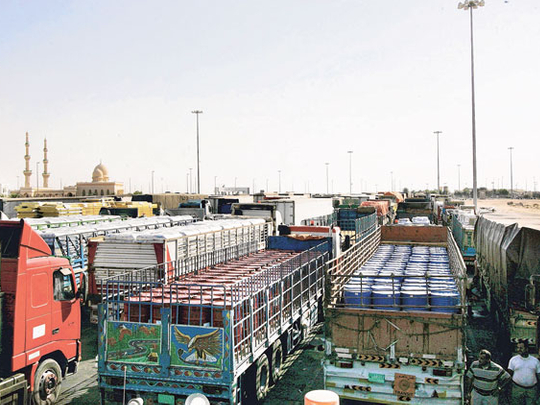
The 13th Gulf Cooperation Council (GCC) consultative summit held in Riyadh last week paid only lip service to econ-omic issues facing the six-nation group. The leaders used the meeting to discuss emerging political and security matters engulfing the region, notably developments in Bahrain and Yemen.
Nevertheless, the final communique touched on the need to resolve outstanding issues related to implementation of the customs union project. For obvious reasons, GCC officials feel embarrassed about the lack of progress on this integration project many years after it came into effect. Conversely, real progress has occurred in subsequent integration schemes, notably the Gulf Common Market (GCM), which started in 2008.
In retrospect, the customs union project went into effect in 2003 with the original plan calling for its full implementation in a span of two years. Yet, the GCC's 26th summit held in Abu Dhabi in late 2005 pushed the deadline back by two more years, but that didn't help much. No fresh deadlines were placed until very recently or in the run-up to the 13th consultative summit.
Unlike earlier deadlines, the new one seems realistic rather than idealistic. The new policy calls for developing a plan by this year-end to resolve all remaining issues facing the customs union project over the next three years, so as to ensure its full implementation at the start of 2015.
New approach
The new approach was adopted during meeting No 90 of the GCC's finance ministers that discussed a range of economic issues of collective concern. The meeting was held in Abu Dhabi with the UAE heading the GCC until the next regular summit in Saudi Arabia towards the end of this year.
To be sure, the customs union encountered serious challenges ever since its inception, notably the need to develop a formula to ensure fair distribution of customs duties acceptable to all six states. Sticking points include port of entry and final destination of goods.
As mentioned earlier, GCC states found greater success with the GCM scheme despite it coming into effect some five years after the customs union project. The GCM allows free movement of factors of production among member states. The project covers all economic and investment services, dealings in the stock market and setting up of companies in the public and private sectors besides social insurance among GCC citizens. Still, the last two GCC summits added new dim-ensions to the GCM, with the 30th summit held in Kuwait in 2009 adding an extra item to the list, namely access to technical studies provided in member states. Also, the last summit held in the UAE saw an agreement to allow GCC firms the right to open branches in member states and to be treated as local ones.
Concurrently, the 13th consultative summit offered few clues about the progress of the Gulf Monetary Union (GMU) project, in turn officially launched at the start of 2010 but with no specific deadline.
Only Saudi Arabia, Qatar, Kuwait and Bahrain are parties to the venture. The GMU's final goals include unifying monetary and fiscal policies and therefore introducing a single currency for member countries.
Certainly, GCC subjects cannot be blamed for looking for economic benefits from the grouping that came into being more than 30 years ago.
Undoubtedly, delays in the comprehensive implementation of the customs union project only undermine popular appreciation of integrating projects altogether. Other than the customs union, hopes remain high for the GCM, which is designed to remove all sorts of restrictions on intra-GCC business by promoting economic citizenship.
The writer is a Member of Parliament in Bahrain.












